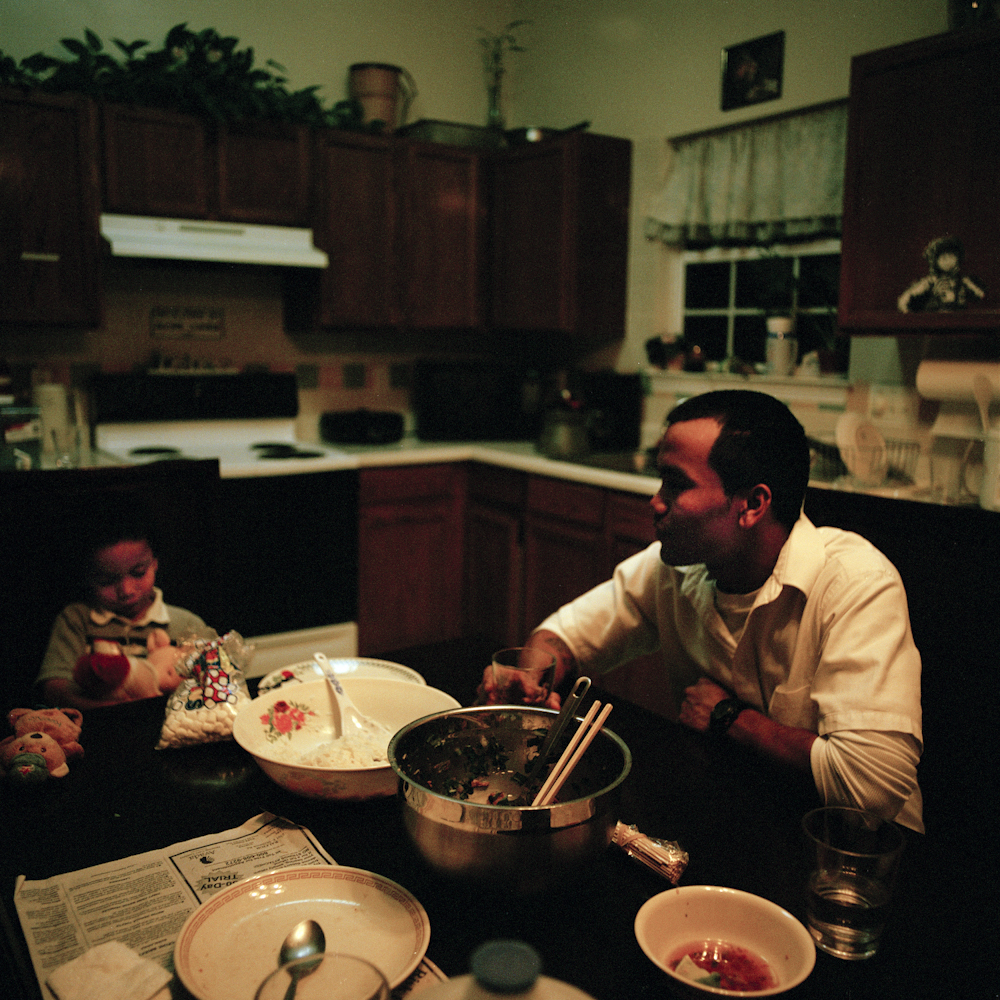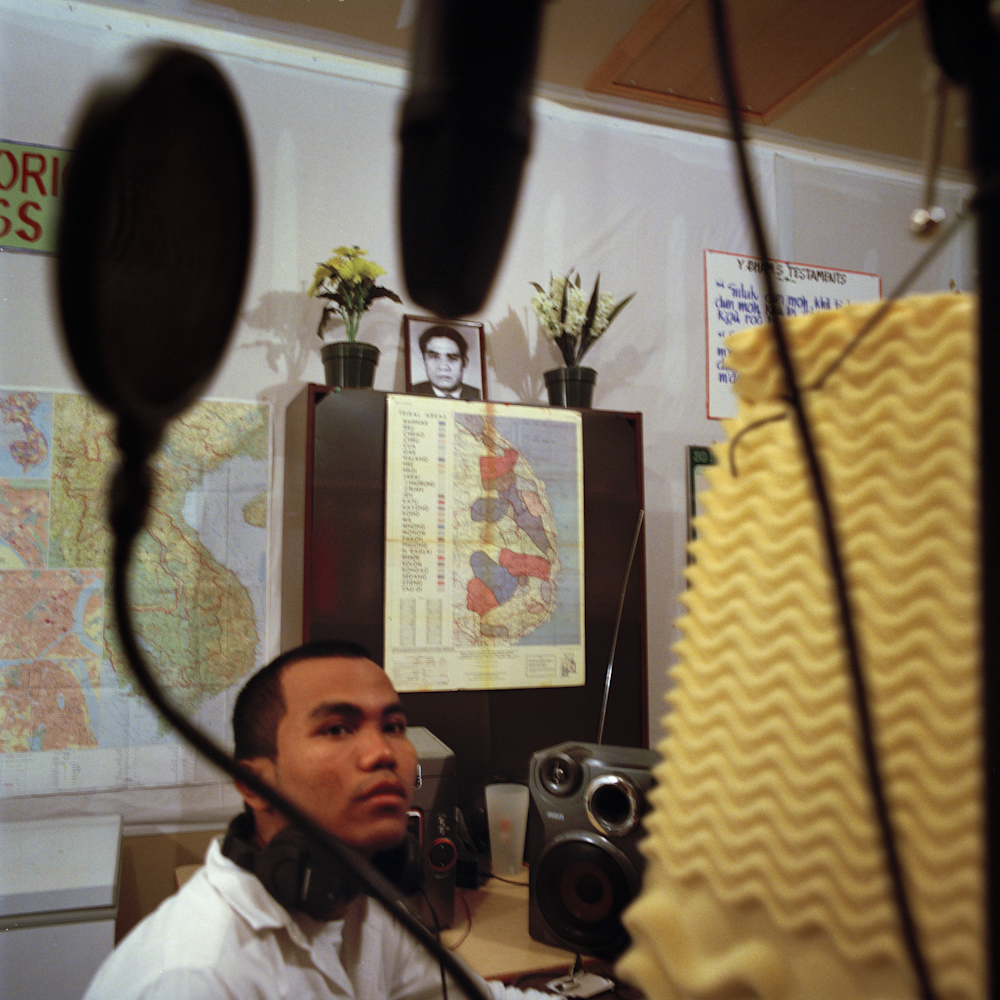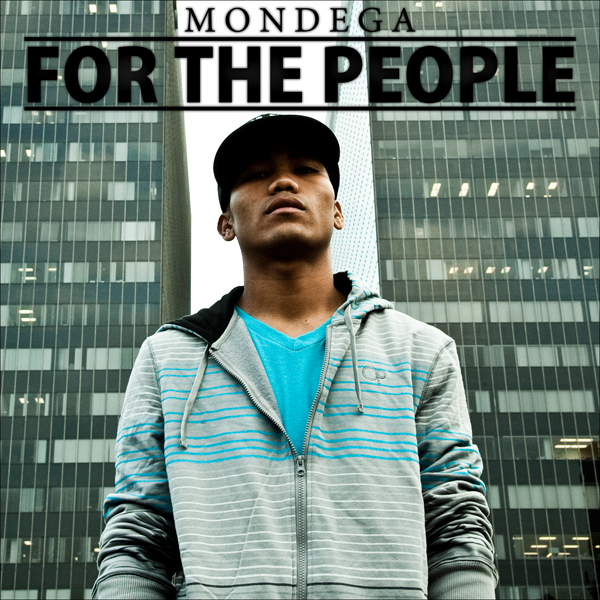At diaCRITICS, we center a cross-ethnic and transnational approach, as fifty-four ethnicities live within present-day Vietnam and as the Vietnamese diaspora has resettled on five continents. Yet the ethnic minorities of Vietnam, and their communities abroad, are often forgotten. By featuring those in the Vietnamese diaspora whose identities and histories are less well known, we highlight the importance of de-centering Kinh (ethnic Vietnamese) assumptions about what is “Vietnamese.”
—
Third-world refugee, to inner city gangbanger, Mondega’s debut album For the People floods ears with a hip-hop perspective that’s undeniably relevant – though still relatively denied. May this album be the catalyst that changes it all.
I admit my bias. I’m reviewing “For The People,” the debut CD of emerging rapper Mondega – whom I know as Bom Siu, a friend I consider family. Like my mother who knew his father, he was born in Cheo Reo, in Vietnam’s hilly Central Highlands. His rap moniker, Mondega, is a nod to the region’s ethnic minority tribes who call themselves either Dega, or by the widely-used term, Montagnard — the colonial French term for “mountain people.” Mondega and I have chatted in his home base of Raleigh, North Carolina, about our shared heritage and I’ve been a fan since 2008, watching him grow with his music.
But all of that didn’t really prepare me for the deer-in-headlight moment of self-recognition. This album smacked me with the realization that prior to its release, never has there been a single work of artistry that depicts my identity as a Montagnard and an American. Ever. I felt like fictional Janie, of Zora Neale Hurston’s Their Eyes Were Watching God, who grew up not knowing she was black until she saw a photo of herself. You don’t know what you’re missing until it hits you.
A few weeks ago, I began to think that I’m not alone in this sentiment. In fact, there seems to be thousands of us clamoring to see our story told, for inclusion into this wild thing called the Asian American experience.
http://www.youtube.com/watch?v=zvd5WEqrSfw
Mondega swept a viral online poll for “Artist of the Week” on MTV Iggy – the corporate giant’s arm for global pop music. He edged out six other artists early and lead unsurpassed with votes that crossed race and ethnicity—apparent by posted comments. The posts also revealed the flood of teenagers and twenty-somethings in states like North Carolina, Texas and California who share his experience of growing up as first generation South East Asian refugees. They were responsible for making Mondega not only the Artist of the Week, but also the record-breaker of most votes in the history of the competition. Demanding attention to their story, Mondega emerged as a voice of South East Asian American youth.

Through hip-hop poetry layered over infectious beats and samples, “For The People” resonates this voice and experience. In the first track Wake Up, Mondega raps about being ethnic minority in area that has become an apartheid police state after the 2001 and 2004 riots over religious freedom and land rights. He articulates the pressures and perceptions placed on him as a young, minority male living in the American South. He portrays how refugee youth have to reconcile complex identities for themselves, a potent reality in a verse in Wake Up that beckons as much as it forebodes: “Welcome to my world.”
Mondega refers to his people as the Black Panthers of Asia, and tracks like I Have a Dream and Rise Up are militant rally calls against the Vietnamese government. I Have a Dream is Mondega’s autobiography depicting his family’s dangerous trek from the Central Highlands to Saigon, Korea, California and eventual resettlement in North Carolina. This track reveals his exceptional ability in storytelling through hip-hop.
These songs also address the survivor’s burden of being the one who got out and resettled in more democratic nations. Despite his youthful age of 23, he crafts lyrics about rage and powerlessness, two ends of a pendulum’s swing, with thoughtfulness and maturity.
http://www.youtube.com/watch?v=DSxURjwbK7M&feature=related
I know it’s taken me awhile to wrap my head around perplexing circumstances of having family still stuck in the Central Highlands. We get occasional phone calls and e-mails but I can never rest assured of their well-being. The trickle of news that seeps out of that region goes through underground circuits, reporting gross abuses: prison sentences for undetermined lengths for vague crimes like organizing against the state, people disappearing after they’re returned to Vietnam from Cambodian refugee camps. Journalists are barred. Human rights groups can only enter accompanied by a government official. It’s hard to know what’s real, what’s propaganda, and what has gone unreported altogether. In other words, a total clusterfuck. Welcome.

The track One Day is a clever juxtaposition. With a silkened-voice and French-Vietnamese, Quynh Anh sings “one day, I’ll touch your soil/ one day, I’ll know your soul … hello Vietnam”– as sirens and machine guns fill the background. “Trapped in the mountains and in the coffins,” Mondega raps, “so that you can sip your coffee” — a reference to the commerce that the US fosters with Vietnam after decades of embargoes and despite today’s human rights violations. One verse encapsulates the ironies: “The old folks say that they brought us to the States to bring freedom back home.“
The tracks that fill the middle – Living in America, Love Will Remain and Listen To My Song are where Mondega is his finest, hitting a stride lyrically and tempo-wise. It’s Your Time is the cut I’m bringing to the DJ because damn, I’ve never heard anyone shout out Montagnard girls in a club song. Just saying.
Reprimanded, the last cut, is Mondega’s manifesto of humbling realities and wry observations making him sound like a teacher/preacher– an Asian American KRS-1.
http://www.youtube.com/watch?v=xf5gRoHkU5s&NR=1
Zooming out, “For The People” represents the larger tale of Asian Americanism and the most recent immigration waves in the 80s and 90s. To me, Mondega is part of the same multicultural, musical zeitgeist of M.I.A. and Das Racist – an artistic aftermath of 20th century migrations from civil war and instability of post-colonial Asia, Africa and Latin America. It was only a matter of time before we’d get the story on their terms—like M.I.A.’s pop lesson on the Tamil Tigers, a father missing and root of her stage name, delivered in her British accent. From dizzyingly diverse Queens New York, Das Racist is hip-hop post-modernism through an ethnic, immigrant lens. Both shot to stardom in a sneak attack of underground notoriety, because audiences have been starved for a voice out of the global stew — what has made its mark in literature, but remained largely absent in mainstream music.

Mondega raps about experiences in Vietnam, Laos, Cambodia, and Thailand. If it were another time, his story would be too specific, too foreign dare I say, for universal appeal. Until now. The themes he speaks about are universal, as major cities become dynamic havens of immigrants. What was once hip hop poetry about abandoned and blighted inner cities, are now lyrics about slinging drugs so a family can get the money together to open a restaurant. As the make-up of our cities continue to change, so do the stories and the faces that represent what is hip hop.
Mondega: Your welcome to a new face of our collective history. May our voices be as formidable at the political polls as the music polls.
—Xaigon Mai is a Montagnard-American writer and journalist. She lives in New York City.
Did you like this post? Then please take the time to rate it (above) and share it (below). Ratings for top posts are listed on the sidebar. Sharing (on email, Facebook, etc.) helps spread the word about diaCRITICS. Thanks!




Bom Siu aka Mondega Siu is currently living in Kerava, Finland. He is no longer in Raleigh, North Carolina.
My wife is from dak to Kontum. She is Sedang. My son really digs Mondega’s music. I have been to Vietnam in 1993 and lived in the Central Highlands. My son also.
As a Khmu which is a group similar to Khmer and possibly the Dega, I find this inspiring. It’s nice to a “fellow” hill-tribesman doing rap. It kind of reminds me and my people trying to distinguish ourselves from the Lao people since we came to America as Lao refugees so word to you for posting this up. One love.
“If you dont know youself, if you dont love yourself, how can you love anyone else and expect that love to be genuine”. Truly words spoken directly from the mouth of one of our Gods. Live on Mondega. Carry the message to your people (the world over) that we must RISE UP.
Thanks, Xaigon Mai. I really appreciate learning about Mondega and his music. My heart goes out to the ethnic minorities in Vietnam (and all other Viets struggling under an oppressive regime). Please consider clarifying in your articles that the “government” in Vietnam is a communist one, and a regime that has been in control since North Vietnam took over South Vietnam in 1975.